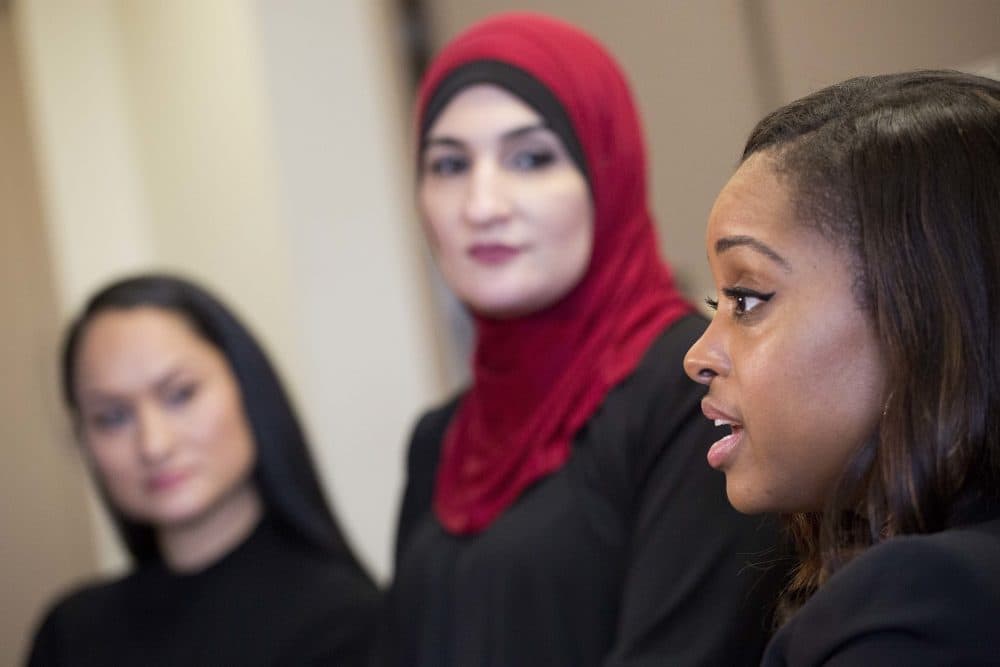Advertisement
Before The Women's March: The Privilege Of Debating Privilege

COMMENTARY
The day after Donald Trump’s victory, frantic to do something and leaping at the first option that presented itself, I invited friends and family to join me in attending the January 21 Women’s March on Washington.
My millennial daughter responded almost instantly. “A lot of the social justice types I follow on Twitter are calling this march an example of the #Solidarityisforwhitewomen phenomenon. Given that between 52 and 66 percent of white women voted for Trump, I'm not super comfortable marching with them.”
I was initially shocked and stung by her characterization of this march -- and of the movement through which I came of age -- as “white” feminism. After all, we’d come a long way since leading suffragists consciously prioritized the voting rights of white women over the human rights of black people.
I don’t consider any woman who voted for Trump a feminist.
“Clearly the women calling to protest Trump’s election are not Trump supporters,” I fired back. “So while it may be true that 56 percent of White women voted for Trump, I don’t think it follows that ‘White Feminism still rests on the laurels of White Supremacy.’ I don’t consider any woman who voted for Trump a feminist.”
Still, I couldn’t dismiss her point. Contrasting as their politics are, Hillary Clinton, Elizabeth Warren and Kellyanne Conway probably still have more shared experience with one another as white women than they do with wealthy, successful black women, let alone working class women of color. While it’s true that, as Hillary Clinton said, “women’s rights are human rights,” it’s also true that there are enormous disparities in the treatment and experience of white and black women, of affluent and poor women, of white and blue collar women. And those differences in both the quality and degree of oppression weren’t reflected in the march’s initial call to action, which focused on “rights” more than wrongs, with a tone that was seemingly class- and color-blind.
The conversation with my daughter continued via email. “I don't think feminism is intentionally prioritizing white women,” she wrote, “but I think a large number of white feminists think their activism on the one front precludes them from looking at their privilege on the other (in the same way that I felt like Bernie Sanders ignored women's issues in his focus on race). I think a lot of white feminists simply don't know enough people of other races to understand their privilege, while a lot of others are uncomfortable confronting privilege.”
A few weeks later, our familial debate was played out on a larger stage. The march’s organizers posted a quote from black lesbian poet, Audre Lorde on the group's official Facebook page: “It is not our differences that divide us. It is our inability to recognize, accept, and celebrate those differences.” They announced an expansion of their leadership team, making it more diverse and inclusive.
“It is important to all of us that the white women who are engaged in this effort understand their privilege,” they wrote, “and acknowledge the struggle that women of color face.” That allusion to white privilege ignited some passionate, emotional and entirely necessary conflict.
“…I'm Caucasian but feel unwanted at this march,” wrote one distraught woman on the march’s Facebook page. Her sentiment, both petulant and poignant, gets to the emotional heart of this debate.
“I'm also a woman,” wrote another, who looked about my age, in agreement. “I grew up facing many professional and educational discriminatory and diminishing policies. I made less money than my male counterparts. I had to prove my worth every day. If I spoke strongly I was called a bitch. If I asserted myself I was mocked. How does any of this make me ‘privileged’?"
White privilege... doesn't mean it's not possible for a white person to have a very very difficult life.
“White privilege specifically, doesn't mean it's not possible for a white person to have a very very difficult life,” a young white woman of my daughter’s generation gently responded. “It just means you have one less thing working against you in this country. I understand that it is sensitive, and people often seem to feel accused of something when it is said that they have privilege. But it's not an accusation, it is fact and there is nothing wrong with acknowledging it, in my opinion.”
As Americans and as women (who still generally put empathy over confrontation, though that’s a false dichotomy), we have little experience talking about race and privilege. But feeling hurt and misunderstood, feeling angry that our own experiences and good intentions aren’t being “validated” as much as others’ -- even deciding not to attend the march, as some women have -- is in itself an act of privilege. It is putting one’s comfort as a white person ahead of the potentially unsettling recognition that, as the newly issued march platform states, “Our liberation is bound in each other’s.”
“Identity politics” – by which I mean seeking solidarity solely on the basis of race, gender, sexual orientation or any other consequence of birth rather than conviction — is ultimately a dead-end. What you stand for matters more than who you are. But we undermine our aspirations for a more just, egalitarian society if we don’t acknowledge the diversity of experience borne simply of our genetic make-up. And the only way we’ll learn to talk about race and privilege without falling into sanctimony or recrimination is by doing it, by boring through the sometimes bewildering, sometimes hurtful sentiments that spark and fly when we excavate for deeper understanding.
So when we march on Saturday -- men and women of all ages, orientations, colors and ethnicities -- we’ll do it with anger and with joy. Mothers will learn from our daughters as much as they've learned from us. We’ll gather and talk and yes, argue, as an active gesture of both self-examination and outreach.
I can’t wait.
